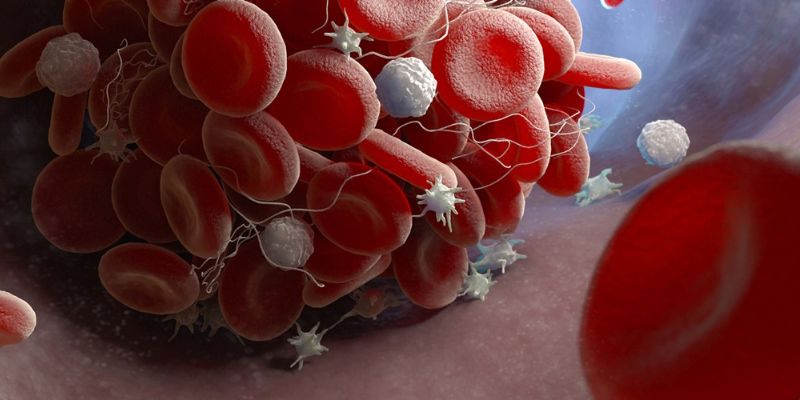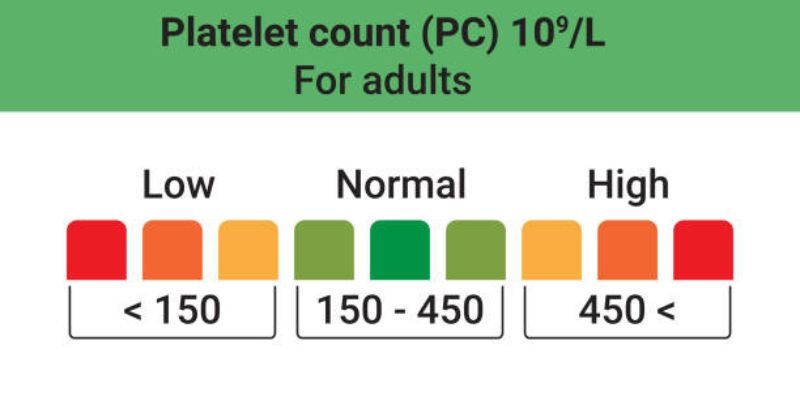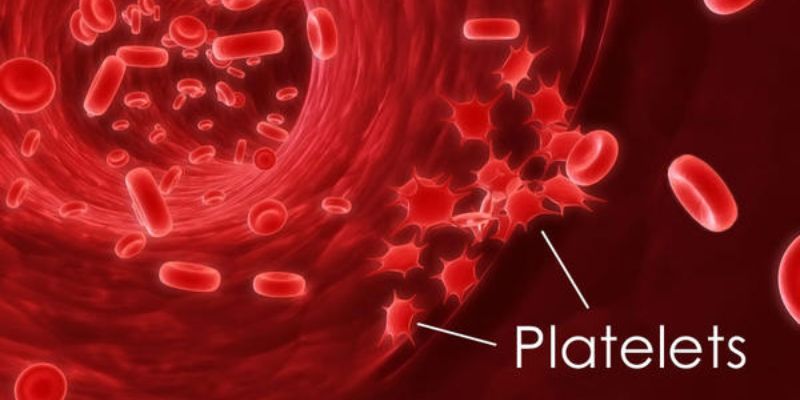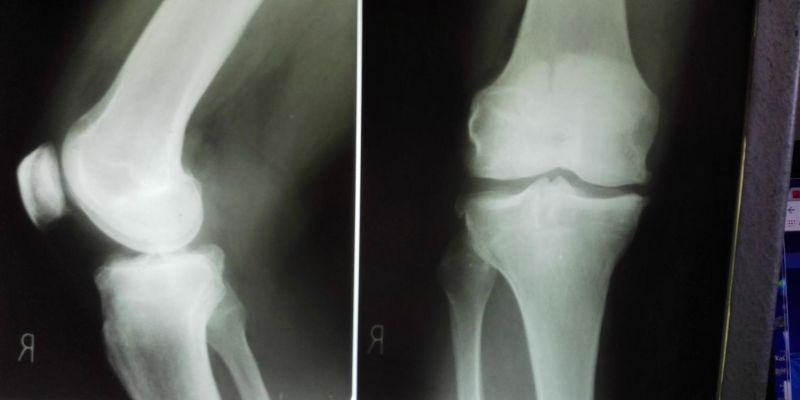You may be concerned if you have recently been to the doctor and discovered that your platelet count is higher than usual. A high platelet count can indicate a serious medical condition, so it’s important to understand when to worry about increased levels to ensure your health and safety.
This blog post will discuss normal platelet count, the causes of elevated levels, and when you should seek medical attention due to an abnormally high number. Read on for more guidance on navigating life with a high platelet count.
Understanding Platelets and What They Do

Platelets are cell fragments that play an important role in blood clotting. Without platelets, our body cannot repair itself after injury or illness. Platelets help stop bleeding by clumping together and forming a plug that seals off injured blood vessels.
When platelet counts are lower than normal, there can be risks of excessive bleeding due to inadequate clot formation.
Normal Range for Platelet Counts

The normal range for platelet count is between 150 – 450 x 10⁹/L. It is important to note that this range may vary slightly from lab to lab depending on their reference ranges and test methodologies used.
If your doctor informs you that your platelet count is higher than 450 x 10⁹/L, it is important to discuss the potential causes of high platelet count.
Possible Causes for Elevated Platelet Counts
There are a variety of medical conditions that can cause a person’s platelet count to rise above the normal range.
These include certain types of leukemia and lymphoma; medications such as non-steroidal anti-inflammatories; bacterial or viral infections; kidney disease; liver disease, or autoimmune disorders like rheumatoid arthritis.
If you have been diagnosed with any of these conditions, it may explain your elevated platelet count. Additionally, suppose you are taking any medication or supplement impacting platelets. Your doctor may want to adjust your dosage or change medications to restore your levels.
Less Concerning Causes of High Platelet Counts
In some cases, the cause of a high platelet count may be less concerning. Some individuals naturally have higher platelet count, an increase considered within the normal range.
Additionally, stress or exercise can increase your platelets temporarily without any negative health effects. Finally, if you recently underwent surgery or experienced recent trauma, it could explain an elevated platelet count due to the body’s natural healing response.
When Should You Seek Medical Attention?
If you have a platelet count that is significantly higher than the normal range, it is important to seek medical attention. Some signs that indicate you should see your doctor include:
• Platelets Above 450 x 10⁹/L: If your platelet count is above 450 x 10⁹/L, it is important to consult a doctor as soon as possible.
• Changes in Your Symptoms: If you experience any changes in symptoms such as fatigue, shortness of breath, or frequent nosebleeds, talk to your doctor about your elevated platelet count and potential causes.
• Bleeding Episodes: An elevated platelet count can increase your risk for bleeding episodes. If you notice any unexplained bruising or bleeding, it is important to immediately seek medical attention.
Warning Signs of Abnormal Platelet Levels
Knowing the warning signs of an abnormally high platelet count is important. While everyone’s normal level varies but is generally between 150-450 x 109/L, levels that exceed this range may be a sign of a serious medical condition and should be checked by a doctor or healthcare provider.
Here are some common signs of an elevated platelet count:
• Nosebleeds: A sudden increase in nosebleeds can be one of the first indicators that your platelet levels are too high. However, remember that nosebleeds can also have other causes, so it is important to consider all factors before jumping to conclusions.
• Easy Bruising: If you bruise easily without a known cause, it could be related to an elevated platelet count. It is especially important to pay attention to any unexplained bruises or areas of discoloration on the body.
• Bleeding Gums: Bleeding gums can often be caused by an increased platelet level in the blood. If you regularly experience bleeding gums without brushing too forcefully, this could be a sign that something is wrong.
• Unexplained Fatigue: Unexplained fatigue can also be symptomatic of a high platelet count. This is because abnormal levels can affect your energy and make you tired.
It is important to note that other medical conditions may also lead to exhaustion, so it is important to consult with your healthcare provider for further evaluation.
If these signs and symptoms are present with an elevated platelet count, it could indicate an underlying medical issue such as leukemia or a blood disorder.
If you suspect your platelet levels may be too high, seek medical attention immediately for proper diagnosis and treatment options.
When to See a Doctor for High Platelets?
If you are experiencing any of the symptoms outlined above or if your platelet count is higher than 450x109/L, it is important to seek medical attention. Your doctor or healthcare provider can further evaluate and recommend treatment options based on your needs.
In some cases, a high platelet count may resolve itself without any additional measures; however, it is important to have regular checkups and keep track of any changes to ensure your overall health and well-being.
Home Care Strategies for Managing High Platelet Counts
If you are living with high platelet counts, there are some strategies that you can use at home to help manage your levels. Here are a few tips for managing elevated platelet counts:
• Avoid Alcohol: Drinking alcohol has been linked to increased platelets, so it is important to avoid or limit your consumption of alcoholic beverages.
• Healthy Diet: A healthy diet rich in fruits and vegetables can help keep platelet levels balanced. It is also important to stay hydrated to ensure proper blood circulation throughout the body.
• Stress Management: Practicing stress management techniques such as yoga or meditation is essential. This can help reduce anxiety and prevent any further increases in platelets.
• Exercise: Regular exercise can help boost circulation and reduce platelet levels. However, speaking with your doctor before starting any new physical activity is important, as some exercises may be contraindicated for certain medical conditions.
By following these tips and taking the necessary precautions, you can keep your platelet count in check and live a healthy lifestyle.
If your doctor or healthcare provider has recommended medication or other treatments for high platelet counts, follow their instructions carefully to manage your condition effectively.
FAQs
Should I be worried if my platelet count is high?
It depends. High platelet counts can indicate a serious medical condition, so it's important to seek your doctor's advice if you experience an abnormally high number. Be sure to discuss any symptoms or concerns with your physician for their best guidance on how to proceed.
What is an alarming high platelet count?
A worrisome high platelet count is typically considered to be over 450,000/mm3. Be sure to talk to your doctor to determine the best action if you experience abnormally high levels.
What should I do if my platelet count is higher than normal?
If you find out that your platelet count is higher than normal, it's important to consult your doctor to determine the cause and if any treatment is necessary. Your physician will be able to guide how best to proceed.
Conclusion
If you have a high platelet count, it is important to seek medical advice. While some causes are harmless, others may require further investigation and treatment. Remember that the best way to protect your health and safety is to stay informed and talk to your doctor if you have an abnormally high platelet count. Take control of your health today by keeping up with regular check-ups!




